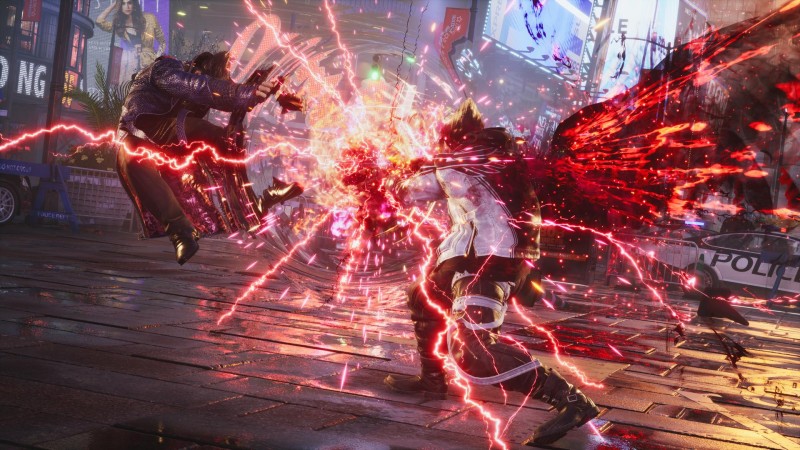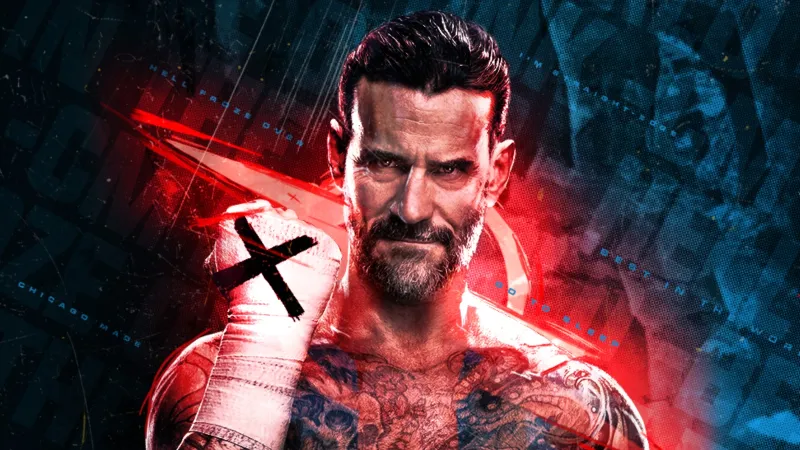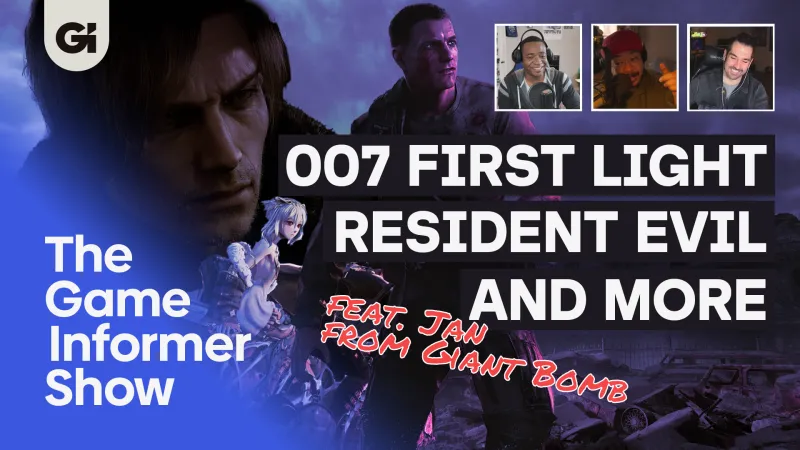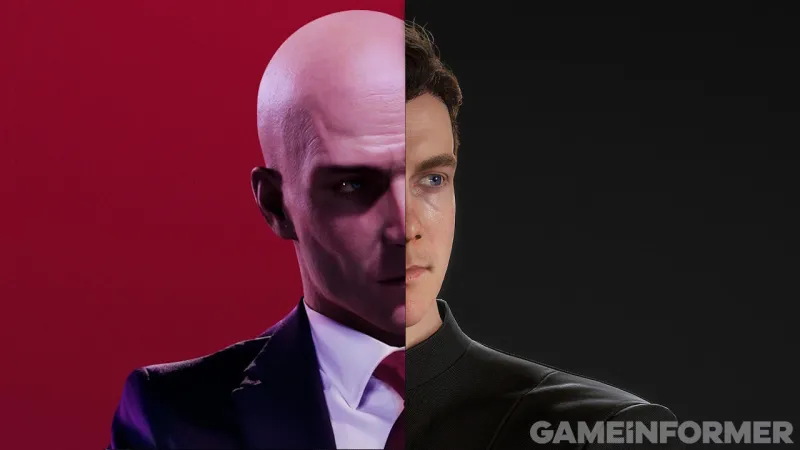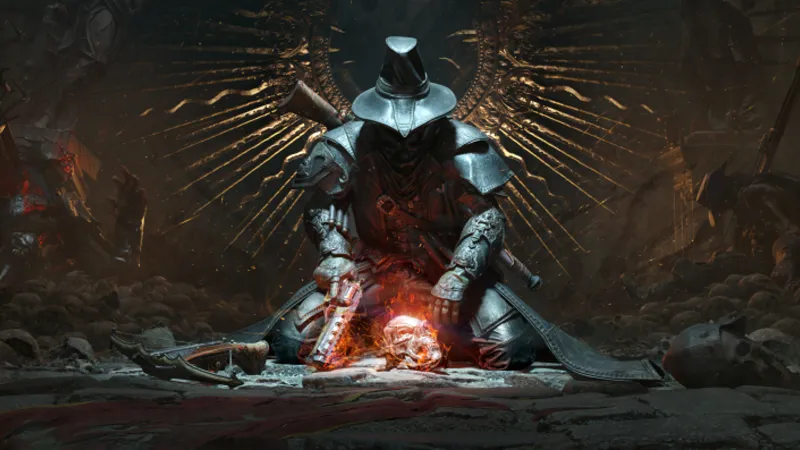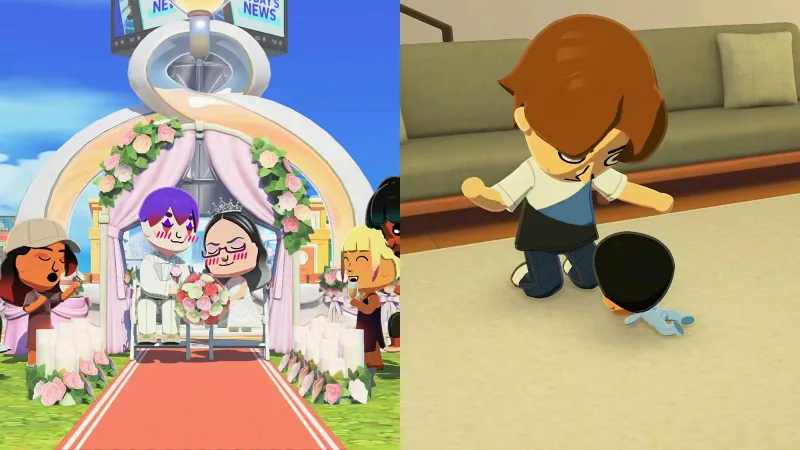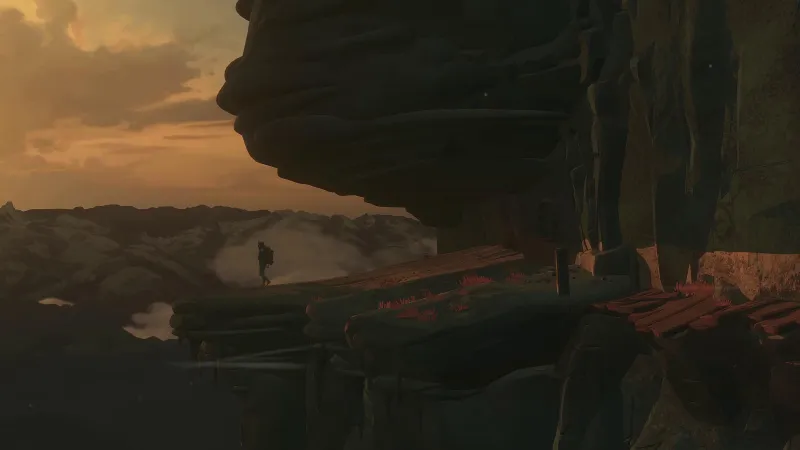Following the events of Tekken 7, the stage for Tekken 8’s story is set up to be perhaps the most over-the-top yet. In the six months since the defeat of Heihachi Mishima, his son, Kazuya Mishima, has installed a reign of terror over the planet using his devil powers. And while the setup is, quite frankly, a lot to take in, if the first four chapters I played are any indication, the level of spectacle and bombast reaches new levels in Tekken 8’s Story Mode.
The first chapter opens with Lars Alexandersson on a high-tech plane. He mentions the mission is to take down “evil incarnate,” as he indicates the very man he hunted in previous titles, Jin Kazama, might be their only hope. The scene flashes to Jin speeding through busy city streets on a motorcycle. To my surprise, he rides his motorcycle up the side of a building and, in a move that would make the combined Fast & Furious and Marvel casts blush, grabs the motorcycle with his hands and throws it at the nearby helicopter. Jin lands on the ground and watches the helicopter’s fiery crash. From the flames, his target emerges – Kazuya.
After a heated exchange, Story Mode’s first fight breaks out. Playing as Jin, I take it to Kazuya. Each time I’ve played Tekken 8 so far, I’ve marveled at how the themes of aggression shine through in the most effective strategies. I sprint at Kazuya, launching him into the air and juggling him with an air combo before blasting him with a Heat Smash. From there, I use Jin’s now-enhanced speed from the Heat Gauge to pummel Kazuya. He gets a few good licks in, but I take him down. Between each round, brief cutscenes set up the next round, giving it a more cinematic feel than a standard fighting game.
In this instance, Kazuya goads Jin’s devil form out, giving me a chance to play as Devil Jin. I put his powers to good use, including his powerful Rage Art. Following this second-round victory, Jin takes the action to the next level as he grabs Kazuya and smashes him through the roof of a skyscraper, bringing the entire building down around them. I couldn’t help but chuckle at how far the team is pushing the events of this Story Mode, even in this first chapter.
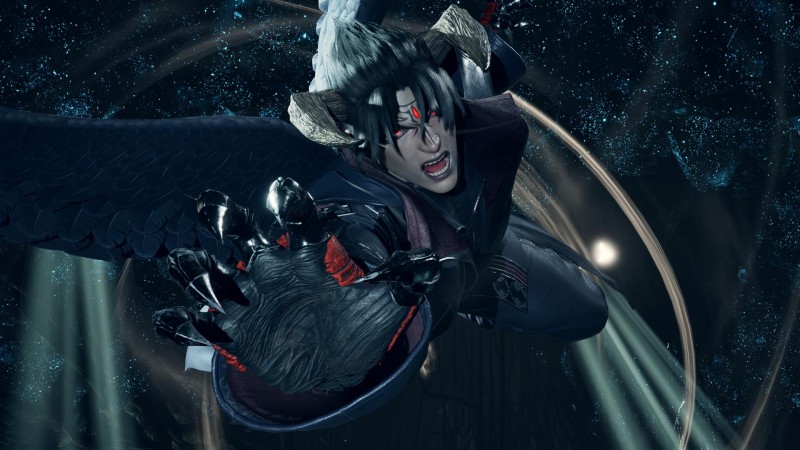
“If you’re comparing it to a movie, movies are usually 90 minutes or so, so, relatively, it’s not that long; you can pretty much assume your audience is going to stick with it to the end,” director Katsuhiro Harada says. “But for games, we have data that maybe even in some cases, 70 percent of the people don’t actually make it to the end of the game. So, we were thinking we needed to make sure that we really grabbed the audience at that opening scene to make sure they stick with it.”
The next three chapters, which feature Kazuya destroying the world’s military satellites and installing the King of the Iron Fist tournament to determine the new hierarchy of world powers, show that we might be in for a wild ride with this narrative. At the same time, Jin struggles to regain his powers while not allowing them to consume him. It’s silly and ridiculous, and I cannot wait.
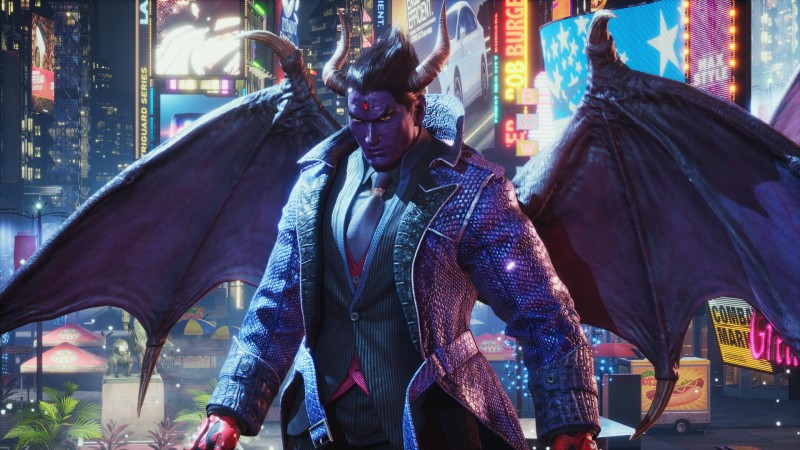
“Since this isn’t a free-to-play game – it’s a full-fledged product package – we wanted to make it so that even if you’re not a fighting game aficionado, you’d still feel compelled to spend that full price just for the story,” Harada says. “That’s the barometer that we’re thinking. That’s what went into getting that high level of quality and volume of the Story Mode, so the people think that that’s almost a game in itself.”
On top of Story, I got to play Arcade Quest, a new secondary story mode focusing on a Tekken 8 player as they journey through the arcade scene in hopes of taking home the gold in various tournaments. Its setup and production values are quaint in contrast to the main Story Mode, but I love going around to different arcades and challenging NPCs to Tekken 8 matches, all while learning new techniques via the in-game coach, Max. Through various avatar-creation options, I was able to make a ridiculous-looking character to represent me during my demo, though I’ll probably make something a bit more pleasing to the eyes when the full game rolls around.
This Bandai Namco-created avatar is much better than the nerd I created
Those customization elements carry forward to the main roster of characters as well. Unlockable customization elements let you creatively reconfigure the visual elements of your favorite fighters. After toying around with different hair colors and outfits for Tekken newcomer Victor, I realized that no matter what I changed about his original appearance was worse than his standard character design. As a result, I added a baguette to his back to complement the sword on his hip and called it a day.
When it comes to actually learning how to play Tekken 8, Bandai Namco has put in various ways to let you learn the ropes. In addition to the Special style control scheme, which lets you pull off combos by pressing simpler button sequences, Tekken 8 carries forward and improves upon many of the other learning tools present in past games in the series. My Replay + Tips lets you study how you can improve your game through tailor-made pointers, while Super Ghost Battles allow you to play against an A.I. opponent that learns player tendencies in real time. And of course, there’s the full Practice mode to really let you figure out how to pull off that move that’s giving you trouble.
When you feel like you’ve studied enough tape, you can take a break and play a little Tekken Ball, which makes its first appearance since the Wii U version of Tekken Tag Tournament 2. This volleyball-style competitive mode lets you smack a ball back and forth, dealing damage with each successful point. It’s goofy and far from the most in-depth feature, but it’s a lot of fun.
After a strong year for fighting games thanks to releases like Street Fighter 6 and Mortal Kombat 1, Tekken 8 hopes to carry that trend into early 2024. With 32 fighters available at launch, including some incredible additions like Victor (who will probably be my new main), Reina, and Azucena, I feel better about Tekken 8 each time I get my hands on it.



